For many aspiring dog owners, the dream of a furry companion comes with a significant caveat: shedding. Excessive dog hair can be a challenge for allergy sufferers, those who prefer a clean home, or simply anyone who isn’t keen on constant lint rolling. The good news is that you don’t have to compromise on companionship to avoid a house full of fur. A remarkable list of small dogs that don’t shed offers a perfect solution, combining compact size with low-to-no shedding coats. These delightful breeds bring all the joy of dog ownership with significantly less hair-related upkeep, making them ideal for apartment living, families, and individuals seeking a neat and cuddly friend.
Understanding the difference between “non-shedding” and “low-shedding” is key. Most truly “non-shedding” dogs have hair that grows continuously, much like human hair, rather than fur that sheds in cycles. This often means they are considered “hypoallergenic” because they produce less dander, which is the primary allergen. While no dog is 100% hypoallergenic, these breeds are generally much better suited for people with allergies. However, “non-shedding” does not mean “maintenance-free.” These coats require regular grooming, brushing, and often professional trimming to prevent mats and keep them healthy.
The Ultimate List of Small Dogs That Don’t Shed (or Shed Minimally)
Choosing the right dog involves considering temperament, exercise needs, and grooming commitments alongside shedding levels. Here’s a detailed look at some of the best small dog breeds known for their minimal shedding, helping you find your ideal companion.
Affenpinscher
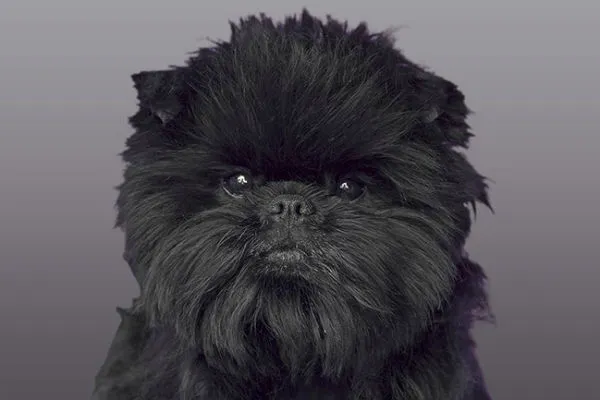 Affenpinscher dog with a wirey black coat sitting attentively
Affenpinscher dog with a wirey black coat sitting attentively
Often described as “monkey-like terriers,” Affenpinschers are charmingly intelligent and mischievous. Despite their small stature, these Toy Group members are fearless guardians of their homes and owners. Their wiry, shaggy coat sheds very little and is also known for having almost no “doggy odor,” a welcome trait for many owners. A quick brush twice a week with a slicker brush and comb is usually sufficient to keep them looking neat and prevent tangles. Their low-shedding nature, combined with their playful and humorous personality, makes them a wonderful choice for those seeking a unique and lively companion.
Basenji
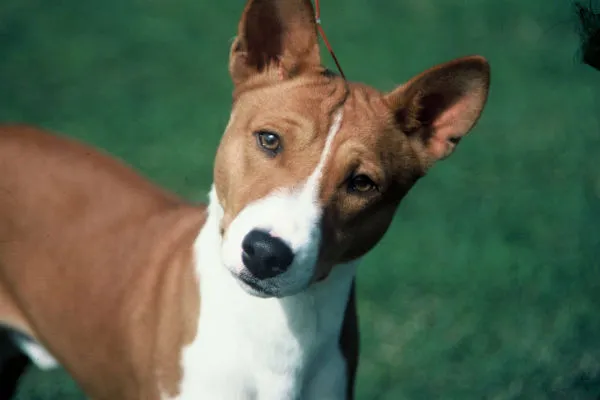 Basenji dog with a short brown and white coat standing on grass
Basenji dog with a short brown and white coat standing on grass
For those who admire the sleek elegance of hounds but prefer to avoid their characteristic scent and shedding, the Basenji is an exceptional option. These unique dogs shed very minimally, thanks to their short, fine coat that requires little grooming beyond an occasional brushing. Basenjis are also famously known as the “barkless dog” due to their unique yodel-like vocalizations, making them ideal for apartment living, provided they receive daily exercise and mental stimulation. Their clean habits and quiet nature make them a distinguished and low-maintenance choice for experienced owners.
Bichon Frise
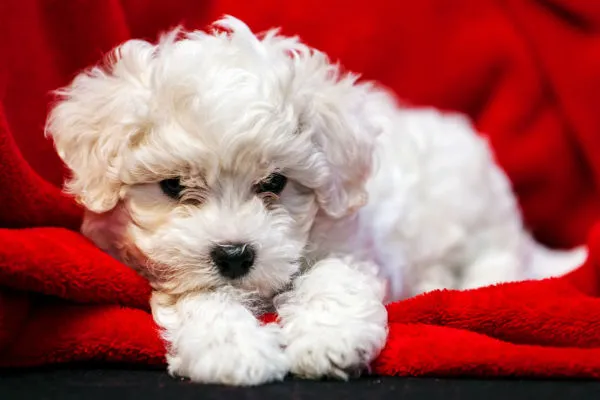 Bichon Frise dog with a fluffy white coat looking cheerful
Bichon Frise dog with a fluffy white coat looking cheerful
The Bichon Frise is the quintessential non-shedding small dog breed, making them a top choice for allergy sufferers. Their delightful powder-puff appearance is thanks to a double coat of soft, curly hair that grows continuously. This means they don’t shed dander into the environment as much as other breeds. However, their continuously growing hair does require significant grooming—daily brushing to prevent mats, regular baths, and professional grooming every 4-6 weeks to maintain their iconic look. These playful, affectionate, and cheerful dogs thrive on human companionship and are truly ideal for families.
Bolognese
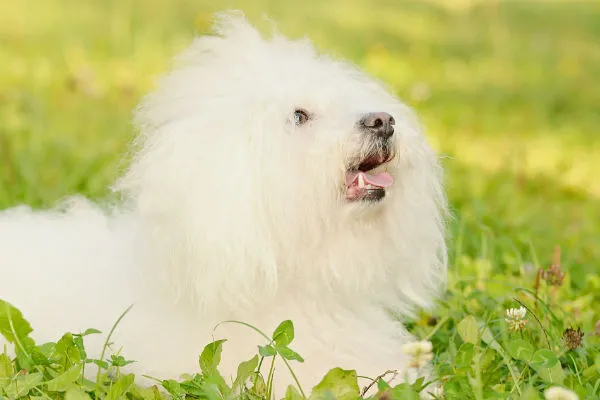 Bolognese dog with a fluffy white coat sitting calmly
Bolognese dog with a fluffy white coat sitting calmly
Similar to the Bichon Frise, the Bolognese boasts a distinctive fluffy white coat composed of hair rather than fur, which means they are another excellent non-shedding option. While they don’t shed their hair extensively, dead hairs must be brushed out regularly to prevent matting and tangles. Daily grooming is essential to keep their beautiful coats in pristine condition. These lovable lap dogs are known for their calm, devoted, and intelligent nature, forming strong bonds with their families. They are well-suited for a more relaxed lifestyle, making them perfect small family dogs that don’t shed for quiet homes.
Brussels Griffon
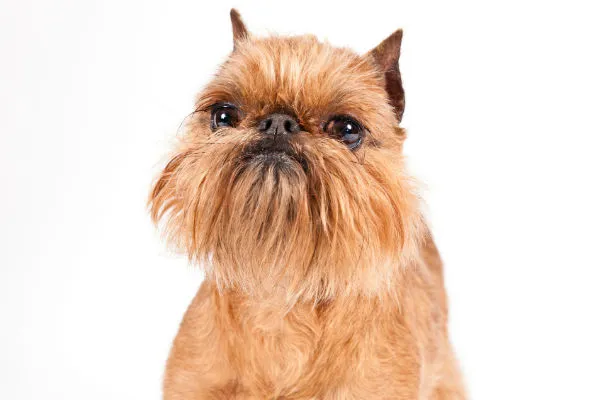 Brussels Griffon dog with a wirey reddish-brown coat looking curious
Brussels Griffon dog with a wirey reddish-brown coat looking curious
Despite their small size and endearing “grumpy” faces, Brussels Griffons are far from pampered pets. Available in both smooth-coated and rough-coated varieties, both types are minimal shedders, especially the rough-coated ones. They benefit from regular grooming, which includes brushing and occasional hand-stripping for the rough coats. Their compact size means that their exercise needs are easily met with daily walks and indoor play, making them an excellent choice for city dwellers. These loyal and sensitive little dogs thrive on close companionship and do best with families who can provide plenty of attention.
Chinese Crested
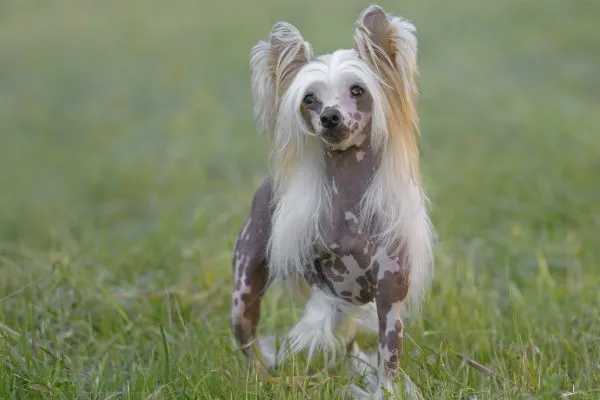 Hairless Chinese Crested dog with hair on its head and tail
Hairless Chinese Crested dog with hair on its head and tail
For the ultimate in low shedding, consider a hairless dog breed like the Chinese Crested. This unique breed comes in two varieties: Hairless and Powderpuff. The Hairless variety has hair only on its head, tail, and feet, making shedding virtually nonexistent. The Powderpuff, on the other hand, is covered with a soft, fine coat that sheds very minimally. Hairless dogs require special skin care, including protection from sun and cold, and are prone to skin irritations if not properly moisturized. Despite these considerations, Chinese Cresteds are affectionate, playful, and thrive on being close to their human companions.
Coton De Tulear
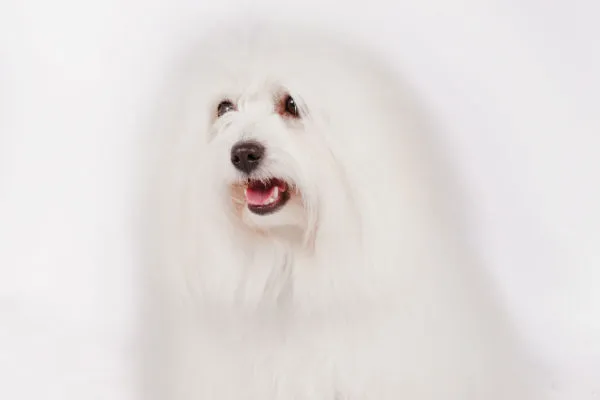 Coton de Tulear dog with a long, fluffy white coat looking gentle
Coton de Tulear dog with a long, fluffy white coat looking gentle
The Coton de Tulear, often called the “Royal Dog of Madagascar,” is celebrated for its distinctive, long, fluffy coat that resembles cotton, hence its name. This coat is considered hypoallergenic, making the Coton an excellent choice for allergy sufferers and those seeking a small family friendly dogs that don’t shed. While they don’t shed much, their beautiful coats do require daily grooming to prevent matting. Their lighthearted, gentle, and intelligent nature, combined with their eagerness to please, makes the effort worthwhile. Cotons are known for being very adaptable and happy companions.
Havanese
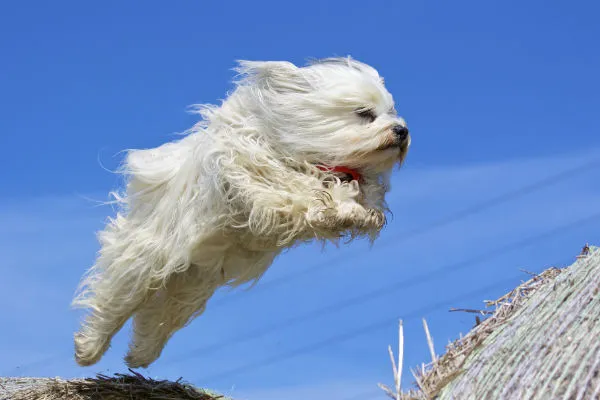 Havanese dog with a long, flowing light-colored coat running
Havanese dog with a long, flowing light-colored coat running
Native to Cuba, the Havanese offers owners a blend of spunky charm and a non-shedding coat. Their long, silky double coat minimizes shedding, which means less time spent lint rolling furniture and more quality time romping with these playful and intelligent dogs. While low-shedding, their coats require weekly brushing to prevent tangles and mats, along with regular baths to keep them clean and healthy. Havanese are highly adaptable and thrive in various living situations, making them excellent companions for almost anyone looking for a joyful, small, and low-shedding pet.
Lhasa Apso
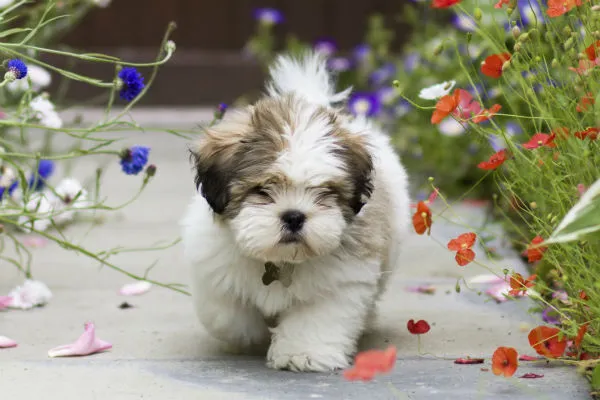 Lhasa Apso dog with long hair covering its face and body, looking calm
Lhasa Apso dog with long hair covering its face and body, looking calm
Originating from Tibet, the Lhasa Apso was bred as a sentinel in monasteries and palaces, guarding against intruders with their keen senses and wary nature. These small dogs make excellent companions—calm yet playful, enjoying both brisk walks and relaxing on their owner’s lap. Lhasa Apsos are renowned for their low-shedding coats, though their long, dense hair demands maintenance. Many owners opt for a “puppy cut” to simplify daily grooming and brushing, ensuring their long hair remains healthy and mat-free without the extensive upkeep of a full show coat. Their distinctive appearance and devoted personality make them a unique and cherished pet.
Maltese
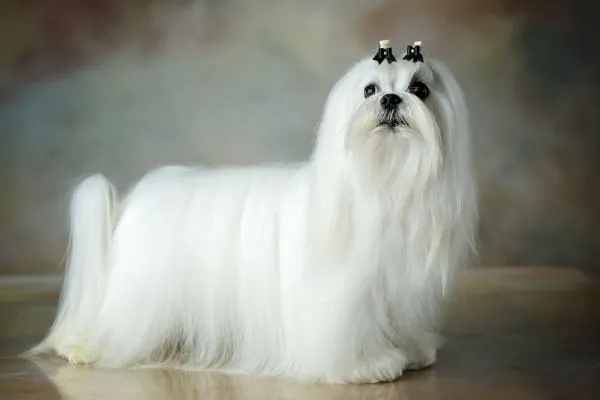 Maltese dog with a very long, silky white coat posing gracefully
Maltese dog with a very long, silky white coat posing gracefully
With a history spanning three millennia, Maltese dogs have consistently charmed their human companions. This ancient dog of Malta has maintained its elegant appearance, partly due to its long, white, silky coat that sheds very little, making it an ideal lap dog. While low-shedding, their exquisite coats demand regular brushing to prevent mats and occasional baths to keep their pristine white hair clean and vibrant. Maltese are gentle, playful, and highly adaptable, thriving on affection and human interaction. They are truly one of the best indoor small dogs that don’t shed, perfectly suited for life as a cherished indoor companion.
Miniature Schnauzer
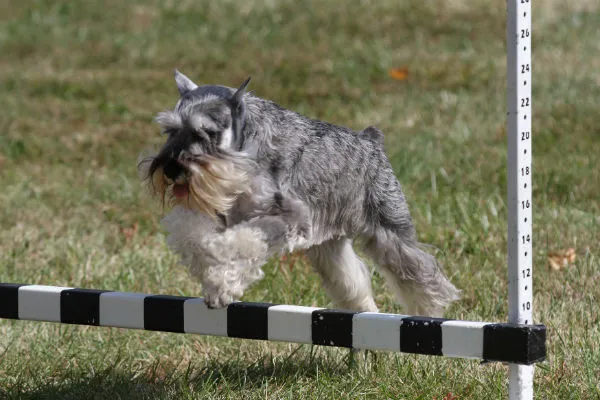 Miniature Schnauzer dog with a distinctive beard and eyebrows
Miniature Schnauzer dog with a distinctive beard and eyebrows
The Miniature Schnauzer is a smart, spirited, and highly trainable little dog that strongly resembles its larger Standard Schnauzer cousin. These Terriers are celebrated for shedding very little, making them a popular choice among allergy sufferers. Their adaptable nature allows them to feel at home in both bustling city apartments and sprawling country houses, as long as they are close to their beloved human family. To maintain their iconic look and health, Miniature Schnauzers require weekly brushing and regular professional grooming, including clipping and sometimes hand-stripping their wiry coats.
Poodle
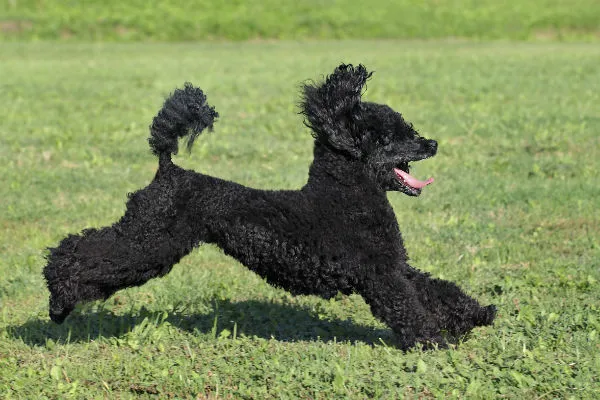 White Poodle dog with a classic poodle cut, looking elegant
White Poodle dog with a classic poodle cut, looking elegant
When people think of small dogs that don’t shed, Poodles often come to mind first, and for good reason. Poodles—whether Miniature or Toy—are truly non-shedding and hypoallergenic, offering these qualities in intelligent, petite packages. Beyond their low-shedding status, all Poodles are known for their exceptional intelligence, making them highly trainable and versatile companions. They are an active, proud, and highly sociable breed whose curly hair requires regular professional grooming and daily brushing to prevent matting. Poodles are a consistently popular choice for active families who appreciate brains and beauty.
Scottish Terrier
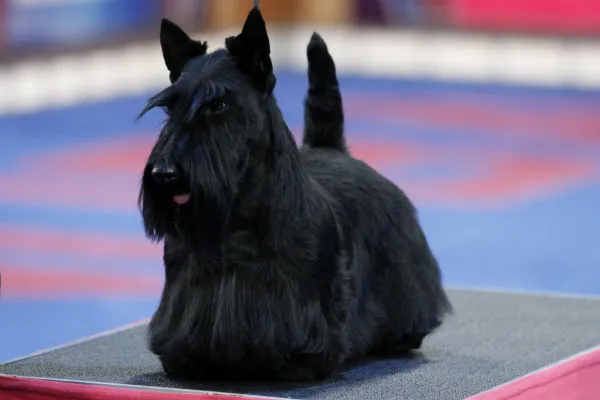 Scottish Terrier dog with a dark, wiry coat standing outdoors
Scottish Terrier dog with a dark, wiry coat standing outdoors
The Scottish Terrier, affectionately known as a Scottie, is a Terrier breed known for its distinctive silhouette, boldness, confidence, and big personality packed into a small body. Their wiry, weather-resistant double coat sheds very little, but it does require regular brushing, grooming, and occasional hand-stripping to keep it healthy and maintain the breed’s iconic outline. Scotties are clever and independent dogs with strong prey drives, which means owners must be mindful around smaller animals. For those who appreciate a dog with character and a low-shedding coat, the Scottie is an excellent choice.
Shih Tzu
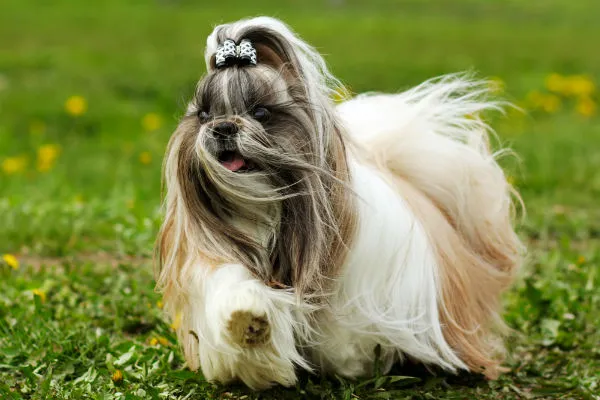 Shih Tzu dog with long, flowing brown and white hair, looking regal
Shih Tzu dog with long, flowing brown and white hair, looking regal
The Shih Tzu is another breed with a long and storied pedigree, historically favored as house pets by Chinese royalty during the Tang Dynasty. These “little lion dogs” come in a variety of colors and patterns, and their long, silky hair is very low-shedding, looking exceptionally regal when properly brushed out. This Toy breed is sturdy, lively, and carries itself with an air often described as arrogant, thanks to their proudly held heads and curling tails. Bred purely for companionship, their gentle, trusting nature makes them exceptional and devoted family members.
West Highland White Terrier
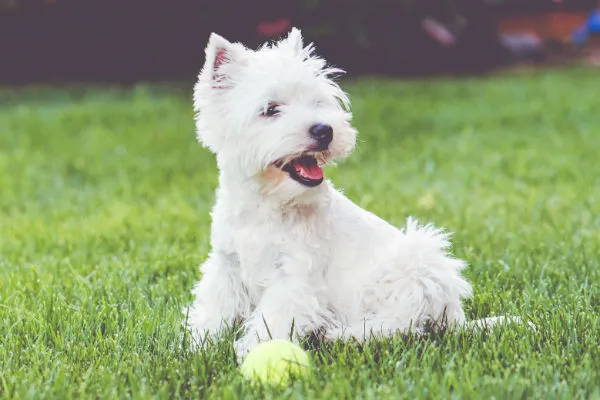 West Highland White Terrier (Westie) dog with a fluffy white coat, looking playful
West Highland White Terrier (Westie) dog with a fluffy white coat, looking playful
The coarse, bright white hair of the West Highland White Terrier, fondly referred to as Westies, sheds very little. This sturdy little dog is intelligent, loyal, happy, and highly entertaining, bringing joy to any household. Westies are curious dogs with moderate energy levels and possess an independent streak common among all Terriers, which can sometimes make training a delightful challenge. Their charming personalities and manageable shedding make them a fantastic choice for families seeking an active and spirited, yet low-maintenance, companion.
Xoloitzcuintli
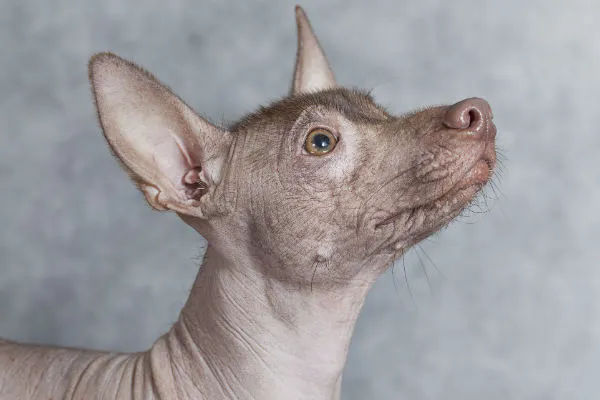 Hairless Xoloitzcuintli dog with dark skin, standing calmly
Hairless Xoloitzcuintli dog with dark skin, standing calmly
Also known as the Mexican Hairless Dog, the Xoloitzcuintli is an ancient and rare breed that comes in both hairless and coated varieties. The hairless type retains a small amount of hair on its head, and the coated variety has a very short, fine coat that sheds minimally. As with any hairless breed, the Xolo requires extra attention to their skin for protection from the elements, including sunscreen and moisturizing. Xolos are attentive watchdogs and affectionate companions. While they enjoy physical activities, they are equally known for their tranquil personality around the home, making them unique and loyal pets. For those curious, you can find many images of small dogs that don’t shed featuring these distinct breeds.
Yorkshire Terrier
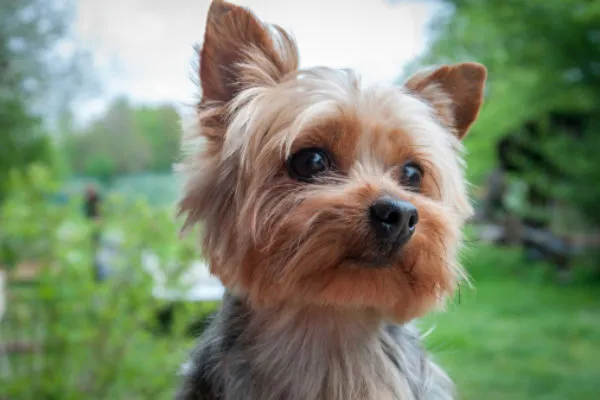 Yorkshire Terrier (Yorkie) dog with long, silky tan and blue hair
Yorkshire Terrier (Yorkie) dog with long, silky tan and blue hair
Sprightly, tomboyish, and deeply affectionate, the Yorkshire Terrier, affectionately called the Yorkie, is a Toy breed brimming with personality. These spunky lap dogs are consistently among the most popular breeds, and for good reason. Yorkshire Terriers do not shed, and their long, silky coats are beautiful when brushed daily, a task made easy by their small size. Don’t be fooled by their regal carriage – Yorkies have working-class roots, originally hunting rats in English clothing mills. Today, they are just as happy to sit on their owner’s lap as they are exploring, making them courageous, devoted, and low-shedding companions.
Important Considerations When Choosing a Low-Shedding Dog
While these breeds offer the benefit of minimal shedding, remember that “low-shedding” does not mean “no maintenance.” In fact, many low-shedding dogs require more diligent grooming to prevent their continuously growing hair from matting. Regular brushing, professional grooming appointments, and occasional baths are crucial for maintaining their coat health and overall well-being. Additionally, if you’re seeking a non-shedding dog due to allergies, it’s important to spend time with the specific breed you’re considering, as individual reactions to dander can vary.
Always research any breed thoroughly to ensure their temperament, exercise needs, and grooming requirements align with your lifestyle. To ensure the health and well-being of your future companion, always seek out a reputable breeder or consider adopting from a trusted rescue organization. Provide a high-quality diet and ensure regular veterinary checkups for a long, happy life together.
References:
- American Kennel Club (AKC). (Various breed pages and articles consulted for characteristics and grooming).
- Veterinary Medical Associations (General guidelines on pet health and grooming best practices).
